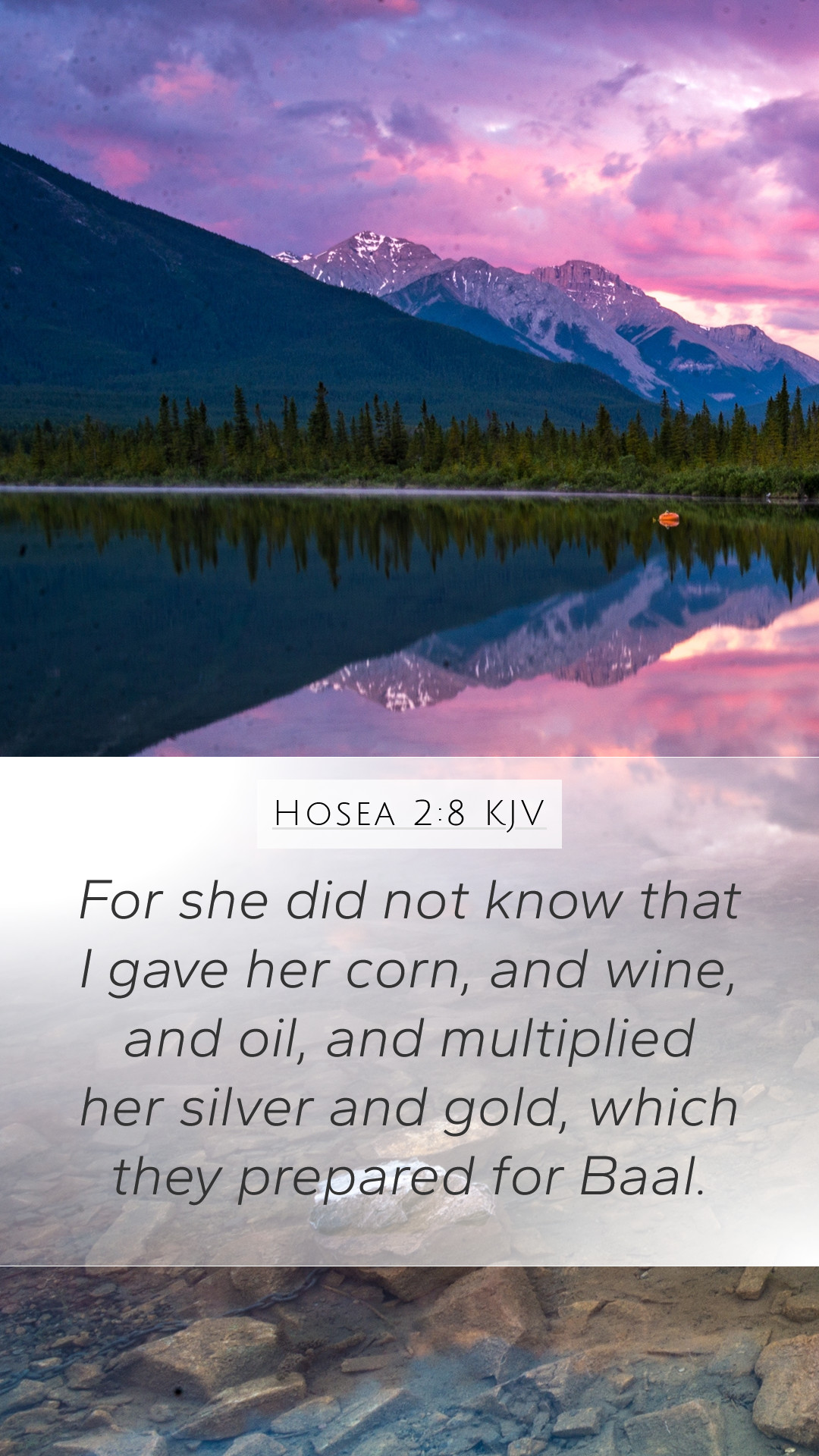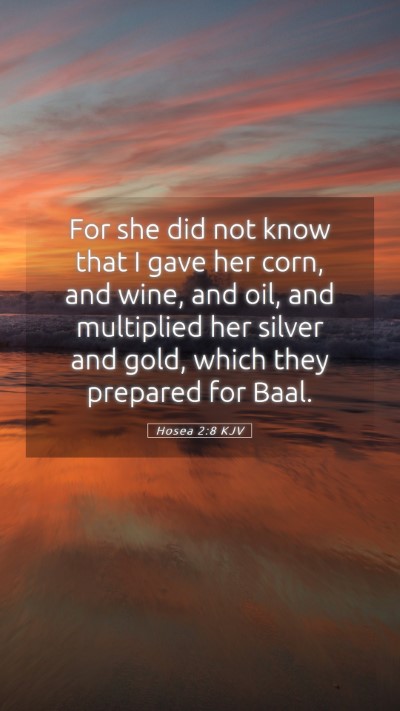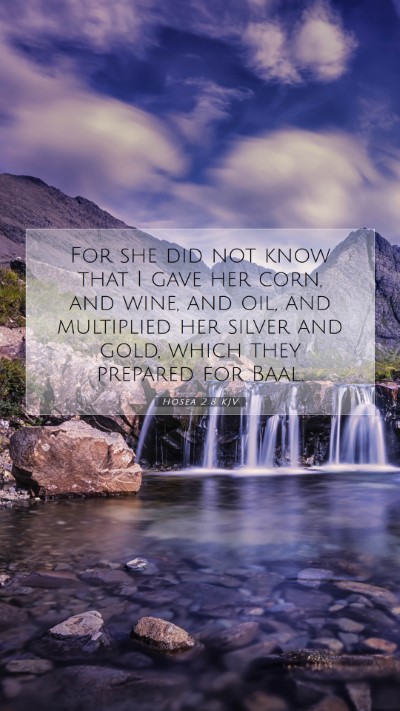Old Testament
Genesis Exodus Leviticus Numbers Deuteronomy Joshua Judges Ruth 1 Samuel 2 Samuel 1 Kings 2 Kings 1 Chronicles 2 Chronicles Ezra Nehemiah Esther Job Psalms Proverbs Ecclesiastes Song of Solomon Isaiah Jeremiah Lamentations Ezekiel Daniel Hosea Joel Amos Obadiah Jonah Micah Nahum Habakkuk Zephaniah Haggai Zechariah MalachiHosea 2:8 Meaning
What is the meaning of Hosea 2:8?
For she did not know that I gave her corn, and wine, and oil, and multiplied her silver and gold, which they prepared for Baal.
Hosea 2:8 Bible Verse Meaning
Understanding Hosea 2:8
Bible Verse: Hosea 2:8 - “For she did not know that I gave her grain, new wine, and oil, and multiplied her silver and gold — which they prepared for Baal.”
This verse from the Book of Hosea is rich in meaning and serves as a poignant critique of Israel's spiritual unfaithfulness. The prophet Hosea, through his messages, addresses the adulterous nature of Israel in their relationship with God, often symbolized through the marriage metaphor between Hosea and his wife Gomer.
Bible Verse Interpretations
In this verse, God laments that His people, represented by Gomer, do not acknowledge the goodness and provision He has given them. Despite showering them with blessings, they attribute their prosperity to false gods, specifically Baal, who represents fertility and prosperity in the ancient Near Eastern context.
Key Insights from Commentaries
-
Matthew Henry's Commentary Insights:
Henry emphasizes the ungratefulness of the Israelites, who fail to recognize God's hand in their blessings. He indicates that their ignorance is profound; in their pursuit of false gods, they overlook the very source of their prosperity, which stems from the one true God.
-
Albert Barnes' Commentary Insights:
Barnes focuses on the tragic irony found in the passage. He underlines that Israel's gratitude for material blessings is misplaced, as they direct their worship toward Baal instead of acknowledging God’s provision. He further explains that God's gifts should lead humanity towards worship, yet the Israelites turned away from the true source.
-
Adam Clarke's Commentary Insights:
Clarke provides a historical context, stating that the prosperity in Israel during Hosea’s time led them to a false sense of security and spiritual complacency. Their reliance on Baal and other idols for sustenance signifies a deeper misunderstanding of their covenant faithfulness to God.
Meaning of the Verse
The elaboration on the spiritual blindness of Israel can be seen as a reflection of human nature: often turning towards what seems pleasing or immediately beneficial instead of recognizing the foundational support from God. The verse illustrates the need for believers to understand and appreciate the sources of their blessings.
Application in Daily Life
For modern readers, this verse serves as a reminder to reflect on their sources of strength and provision. It calls for an active recognition of God's hand in our lives and encourages gratitude towards Him rather than crediting our successes to worldly influences or material gains.
Cross References
- Deuteronomy 8:18 - "And you shall remember the Lord your God, for it is He who gives you power to get wealth..."
- 1 Corinthians 4:7 - "For who makes you differ from another? And what do you have that you did not receive?"
- Galatians 6:7 - "Do not be deceived, God is not mocked; for whatever a man sows, that he will also reap."
- Isaiah 5:4 - "What more could have been done to My vineyard that I have not done in it?"
- Romans 1:21 - "Because, although they knew God, they did not glorify Him as God, nor were thankful..."
Bible Study Insights
In bible study groups, discussions around Hosea 2:8 can spark conversations about the importance of recognizing God's role in our lives. As participants delve into the implications of spiritual unfaithfulness, they can draw parallels between ancient Israel's idolatry and modern distractions that take our focus off God.
Exploring Further
For deeper understanding and application, consider exploring themes such as:
- Believers' responses to God's provisions
- Dangers of misplaced worship and idolatry
- Contemporary challenges in acknowledging God's gifts
- Practical steps for expressing gratitude in daily life
Conclusion
Hosea 2:8 serves as both a historical and contemporary reminder of the importance of recognizing the source of our blessings. By approaching this verse with a heart open to understanding scripture, we can foster a deeper relationship with God, rooted in gratitude and reverence for His unwavering provision.


